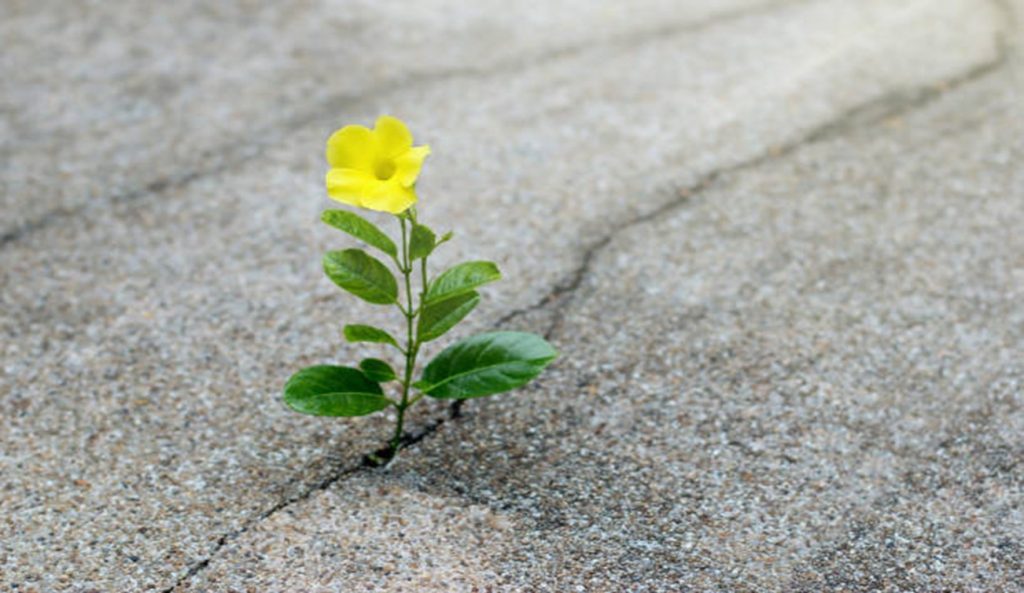 A few years ago, during Lent, I did a photo challenge. Every day for those 40 days, I would take a walk at lunch time, and snap a picture that caught my eye with the camera on my phone. Then I would journal about it. One of the photos I remember taking was of a brilliantly colorful flower, coming up through a crack in the sidewalk. It was particularly noticeable because on that day, it was quite dreary – gray sky, freezing temperatures, even a bit of snow on the ground. The flower was literally stuck between a rock and a hard place, in the frozen tundra of early March. But there she was.
A few years ago, during Lent, I did a photo challenge. Every day for those 40 days, I would take a walk at lunch time, and snap a picture that caught my eye with the camera on my phone. Then I would journal about it. One of the photos I remember taking was of a brilliantly colorful flower, coming up through a crack in the sidewalk. It was particularly noticeable because on that day, it was quite dreary – gray sky, freezing temperatures, even a bit of snow on the ground. The flower was literally stuck between a rock and a hard place, in the frozen tundra of early March. But there she was.
This was a great practice for me. Not just because Lent tends to be a time when the pastor could use a reminder to slow down and contemplate their own life, even as they help facilitate that contemplation for others. It also made me think about how often each of us are forced to find a way to live and grow in less-than-ideal conditions.
The place you feel stuck today may be at home, work, in a particular relationship, navigating a church problem – but I’ll bet whatever it is, the conditions aren’t ideal. Perhaps you don’t have the emotional energy, the know-how, or the power to make it better. Perhaps the effort or care you’ve put into something is not being returned. Maybe you’ve reached that point of exhaustion where you have no idea how you got here, you have no idea what it’s going to take to move beyond here, and like the psalmist, you’ve been crying out “How long, O Lord… am I going to have to live here like this?”
Not buried, but planted to find new life
In less-than-ideal conditions, it is our human nature to always be looking for an escape; to try to forget where we are and to find some place better. But recently I came upon this quote: “Sometimes when you are in a dark place you think you’ve been buried, but you’ve actually been planted.” What if these less-than-ideal conditions are sometimes the very things we need to grow? Not because we serve a God whose favorite teaching method is through punishment – but because these conditions are often the place where we become most clear about who we are, the world we live in, or the way forward.
Observe where you are planted right now. Look at the soil of your circumstances. Does it feel light, heavy, supportive, nourishing, draining? What morsels of food or trickles of water are sustaining you at this very moment? Where do you pray that spring might erupt from the cracks of your life? What beauty is already growing? What are you learning?
I want to invite each of us to find one tangible practice this Lent that helps us slow down and be present in perhaps the less-than-ideal place where we have been planted in this season. It might not be walking or journaling (though I’d highly recommend trying both). It can be any activity that centers you and allows you time to reflect and breathe. In seasons when it feels like we are stuck between a rock and a hard place, it is so important to attend to our own hearts and lives. At least in my experience, this is where God does the greatest work in us and through us. We can have faith that God will raise us up and bring about growth and new life… right where we are planted.
Rev. Kate Monahan is Director of Resourcing, Coastal Plains Region
kmonahan@gnjumc.org

